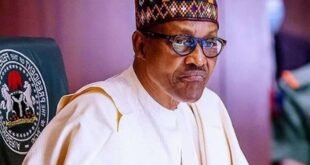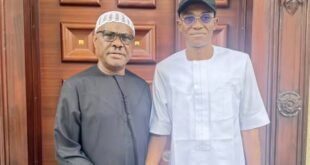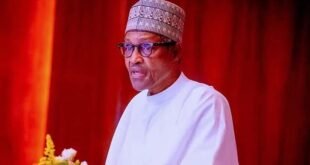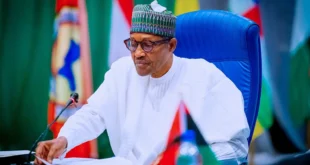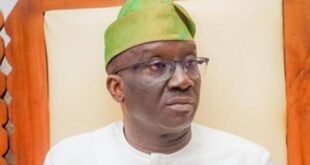Our Model
“Ranking Nigerian Governors” is a monthly publication by Ripples Nigeria dedicated to assessing the performance of Nigerian governors.
Since our founding in August 2019, we have meticulously scrutinized the policy decisions, actions, and impacts — both positive and negative — of state governors on their citizens. Initially, we used a ranking system that highlighted the Top 5 and Bottom 5 Governors each month.
However, in response to declining governance standards across the country, we refined our approach. Our new methodology focuses on identifying key achievements or shortcomings of governors, and offers a comprehensive assessment of governance quality.
While acknowledging the challenges faced by governors, such as resource constraints amid mounting financial obligations, we remain of the opinion that effective leadership can harness Nigeria’s abundant natural and human resources to drive development.
Looking back
In our latest edition, which coincides with the first birthdays of most first-term governors, we review their performance and assess their contributions to governance in their respective states.
We observed that many of these governors faced significant challenges and failed, largely due to a lack of strategic foresight and proactive governance practices.
Across Nigeria, citizens are increasingly skeptical about the direction of the country’s governance, and many wonder whether progress is being made. Unfortunately, the prevailing sentiment suggests regression, not improvement.
In Focus
In this publication, we shall take a closer look at the events in Rivers State and what we consider to be inappropriate responses and actions of Governor Siminialayi Fubara in relation to the crisis that gripped the state during the expiration of the tenure of the local government council chairman.
We also highlight the Niger State Governor, Mohammed Umar Bago, and the ill-advised Sallah party of Saudi Arabia. Finally, we will review the Lagos State Government’s response under Babajide Sanwo-Olu to the cholera outbreak in the state that has claimed many lives.
Siminialayi Fubara—River

Governor Siminialayi Fubara’s handling of the local government leadership crisis in Rivers State and his support for armed supporters raises serious concerns about governance and the rule of law.
We believe that using armed supporters to overthrow the council chairman is a dangerous precedent, undermining the democratic process and the rule of law. Governance should be based on legality and due process, not on the power of armed supporters.
ALSO READ:Nigeria Governors Rankings, May 2024: Tactical mistakes, tough challenges mark first year of ‘first-term incumbents’
We also argue that the crisis itself points to deeper institutional problems within the country’s governance framework. The governor’s role should be to uphold the constitution and ensure that conflicts are resolved through legitimate and peaceful means, thereby creating stability and trust in the government.
The use of violence or the threat of violence in political disputes, dare we say, sets a negative example for citizens and undermines efforts towards peacebuilding and sustainable development. Leaders have a responsibility to promote dialogue and non-violent conflict resolution.
We note Fubara’s concern that his supporters—the same ones who appeared in the viral video brandishing guns—were being marked for arrest, and his vow to lead the way in preventing such lawful arrests. This demonstrates the governor’s understanding of his role as Rivers State’s chief security officer and his constitutional responsibility to maintain law and order.
Overall, Fubara’s approach to the local government leadership crisis, particularly its support for armed intervention, raises significant ethical and legal issues. Leaders must prioritize legitimate and peaceful means of resolving conflicts to uphold democratic values and ensure the safety and well-being of all citizens.
Mohammed Umar Bago—Niger

Governor Mohammed Umar Bago’s trip to Saudi Arabia with state government officials to celebrate Sallah has drawn critical scrutiny from several quarters.
We are of the opinion that the travel time is unreasonable and excessive, given the economic challenges facing Niger and Nigeria as a whole.
Leaders are expected to prioritize the wise use of public funds, especially in contexts where resources are limited and there are many conflicting needs.
We also acknowledge the fact that traveling abroad with government officials for religious celebrations raises questions about the priorities and allocation of state resources. There is no doubt that such trips, involving all the female Permanent Secretaries in the states, among others, must be evaluated against the backdrop of pressing local issues that require immediate attention and allocation of resources.
In addition, accountability and transparency around the funding and logistics of such travel must be made clear to the public. Taxpayers deserve assurances that public funds are being used wisely and in the public interest, especially when public officials travel internationally.
While we recognize the cultural and religious importance of the Sallah celebration, Governor Mohammed Umar Bago’s trip to Saudi Arabia with state officials requires careful consideration of its necessity, financial implications, and the message it sends to constituents about governance priorities and fiscal responsibility.
Babajide Sanwo-Olu— Lagos

Sanwo Olu
Governor Babajide Sanwo-Olu’s handling of the cholera outbreak in Lagos, especially when compared to his response to COVID-19, appears to be a regression compared to the progress made in the past.
In contrast to the rapid and proactive measures taken during the COVID-19 pandemic, the response to the cholera outbreak appears to have been less coordinated and timely. There appears to have been a delay in the initial recognition and response to the outbreak, potentially mitigating its impact.
Furthermore, effective communication and public awareness campaigns, which are critical during the COVID-19 crisis, are not as robust as they were during the cholera outbreak. Greater efforts to disseminate information about prevention, symptoms, and seeking medical care early could help minimize casualties and spread.
In addition, improving infrastructure to promote better sanitation, especially access to clean water, is critical to preventing cholera outbreaks. Investments in this area have the potential to prevent outbreaks or reduce their severity. Long-term strategies to improve water and sanitation infrastructure are critical to preventing future outbreaks.
While the administration of Governor Sanwo-Olu demonstrated competence in managing public health emergencies during COVID-19, the response to the cholera outbreak highlights the need for enhanced preparedness, timely interventions and sustained investment in public health infrastructure to prevent and effectively manage such crises in Lagos State.
Nigeria Governors Rankings; June 2024: Fubara’s desperate attempt to break the law, Bago’s Saudi party, Sanwo-Olu’s lukewarm response to cholera appeared first on Latest Nigeria News | Headlines from Ripples Nigeria.
 JamzNG Latest News, Gist, Entertainment in Nigeria
JamzNG Latest News, Gist, Entertainment in Nigeria


